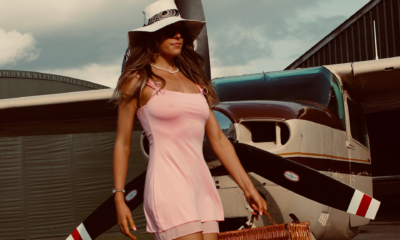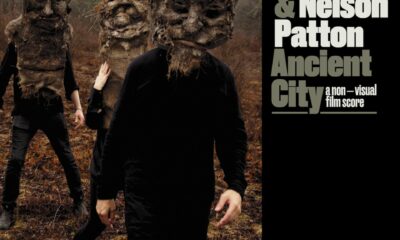Interviews
Jazz Musician Lili Añel Speaks About Her New Album ‘Better Days,’ Early Career Aspirations, and Winding Way Records
We spoke with jazz musician Lili Añel at length about her album, Better Days, the process behind its writing and recording, what has motivated her to carry on now for over 25 years since her debut record, and her decision to sign with Winding Way Records in 2018.
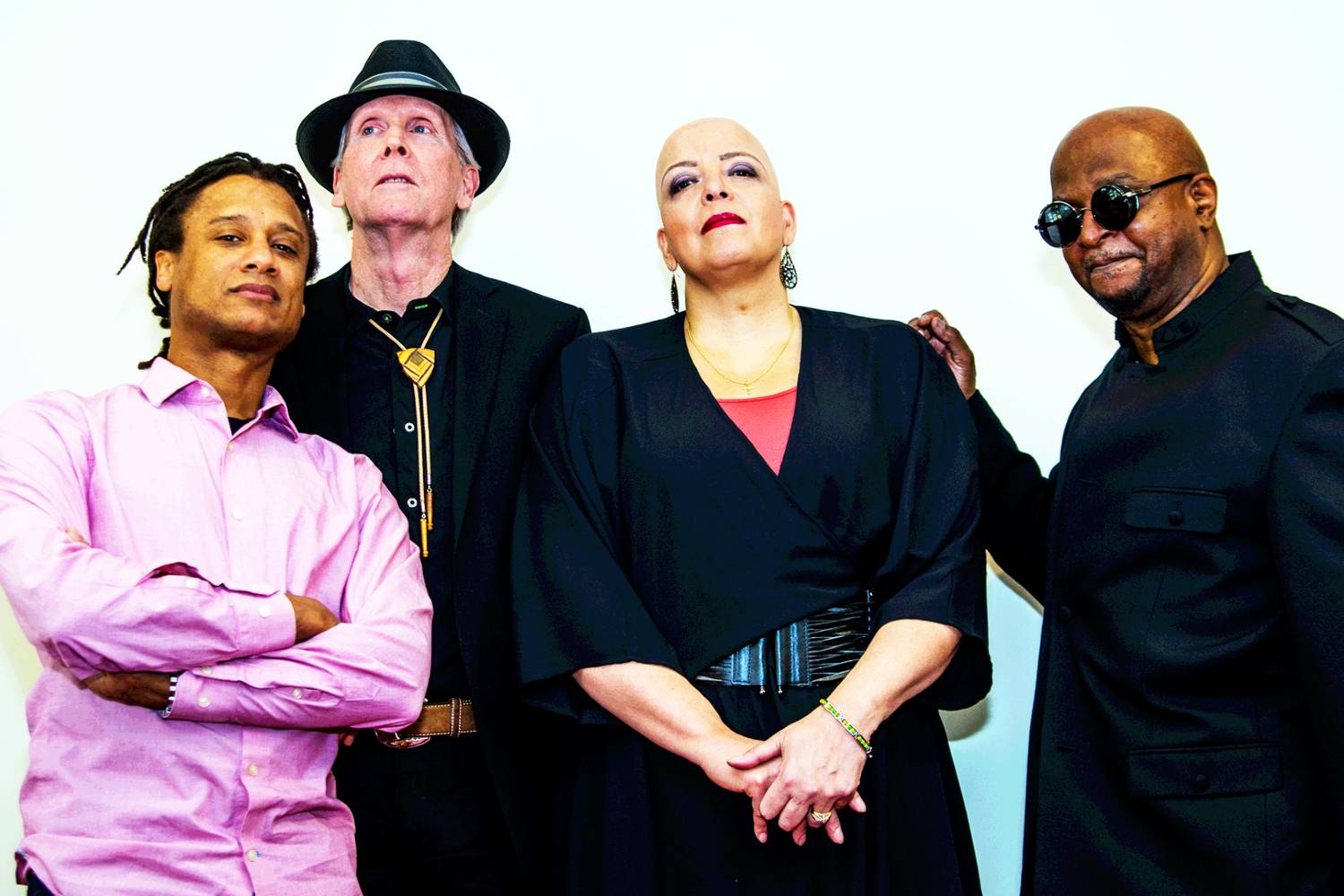
We’re happy to let you know that Better Days have arrived in the form of Lili Añel’s brand new studio album. Añel (pronounced Ahn-Yell), released the record in October through
Better Days is an album a long time in the making, with Añel putting in perhaps the most time and effort she ever has in creating a record. Despite the length of time, it’s been a rewarding experience and resulted in one of her strongest efforts to date. With plans to tour as much as possible this year, we recently spoke with Añel at length about Better Days, the process behind writing and recording it, what has motivated her to carry on now over 25 years since her debut record, and what made her decide to sign with Winding Way Records in 2018.
Lili Anel- Take It From Me from Lili Añel Official Video Channel on Vimeo.
Better Days is your brand new and recently released record. First off, congratulations on its release. Secondly, now that it’s been out for everyone to hear for a couple of months now, what are your feelings on how the songs turned out?
Lili Añel: “I feel the songs turned out exactly as I had envisioned at the time I recorded them, and I’m very pleased with the result. Like other musicians, after listening, I will always hear something I might have done differently, which is not to say I am dissatisfied with the work I’ve done, it’s just part of the process, I’m always evolving and growing, even while I’m working.”
Are you typically an artist that reaches a point of satisfaction with your work? Or do you find that when you listen back to songs, you find aspects or small details that you would change given a second chance?
Añel: “You reach a point in the recording process where you have to draw the line. You either decide you don’t like how something turned out and you go back to the drawing board, and take a different approach and re-record the song, or, you’ve been listening to a song you’ve recorded so much that you begin to split hairs, at that point, you have to say ’it’s done’ and walk away.”
Better Days is an interesting title for an album. Does the title point towards looking forward to better days? Or perhaps looking back on when things were better?
Añel: “It points towards looking forward to better days. When I was a kid growing up in circumstances that weren’t so great, my grandpa would always tell my sister and I, ’better days will come.’ It gave us hope. That’s where the title and concept for the song came from. I co-wrote the lyrics with my sister Barbara. We often think if we could do parts of our lives over we’d get it right and all would be perfect. Obviously, this isn’t true. The best thing we can do is move forward. When I look back on my life I can safely say my grandpa was right; better days were ahead, and they arrived. They continue to.”
Take us through the time period in which Better Days was recorded. When did you begin, was it a continuous process and at what point did you feel like you had a record?
Añel: “This recording was different from others in that I wanted my performing band to be who played on the record, be the core of it. Often I would hire known session players, but I wanted this recording to be my band. We’d been playing together for about two-plus years and I wanted this record to include the musicians that bring life to my music when we perform live. We have a ’sound’ I wanted to capture.
We began in October, November 2017. It was a continuous process, except there were a couple of songs that I needed to ’sit’ with. They weren’t sounding as I wanted. My music is very rhythmic. The rhythm on a couple of songs was not sitting right. Sometimes it’s just a question of living with a song for a while before it is ’birthed’ completely. You can’t move forward when it’s not ready, doesn’t sound right. I have the final say. I live with a song arrangement in my head for a good while and when I present it to the band, it usually is established as I heard it; sometimes even better than I anticipated. Sometimes it takes more work. I tabled further recording to winter, spring of 2018. I am glad that I did, as we worked further on the songs and they turned out brilliantly. By May 2018, we were mixing and the whole record had come together better than I had anticipated.”
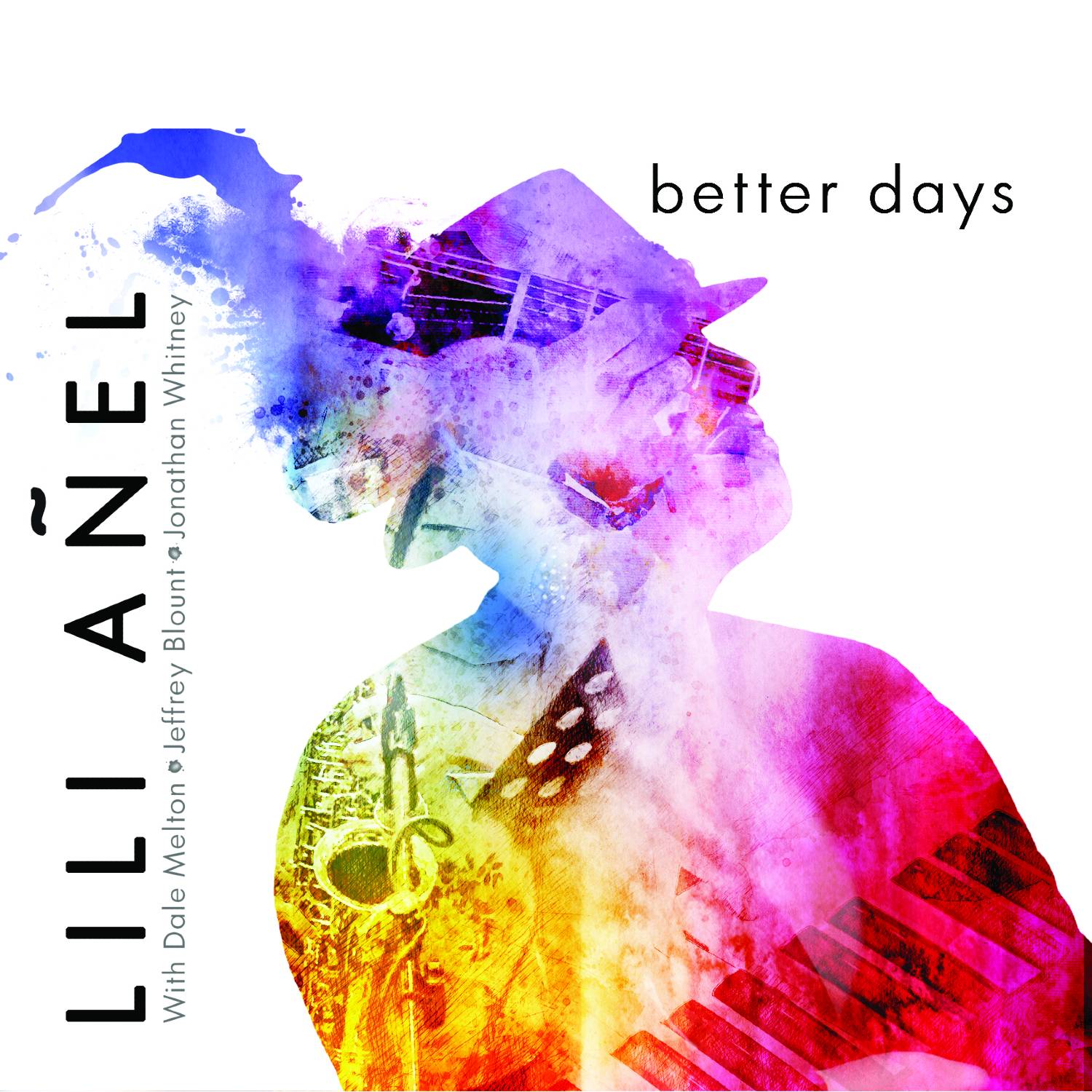
How much (if any) of Better Days is collaborative? Did you primarily write on your own or are there other songwriters who helped you along with certain aspects?
Añel: “I tend to write on my own. I have co-written lyrics with a couple of other writers in the past. My twin sister, Barbara, who is also a musician has co-written a few songs with me. She is my favorite co-writer. She co-wrote Better Days with me. She knows me extremely well. I tend to lyrically be more direct in my writing/storytelling than I perhaps should be at times. At one point when we were writing Better Days she said to me ’you can’t say that, you’re going to scare people.” I think I’d written something like “life is hell.” The line eventually became “life is harder than living.” She softens some of my edges. She is usually spot on.”
Winding Way Records, who you just signed with about a year ago, was instrumental in the release of Better Days. What were the circumstances surrounding you signing with Winding Way? What was it that made you want to sign a recording contract with them?
Añel: “In early 2018 I had read an article on a new independent label in Philadelphia, Winding Way Records. It stated that the head of the label wanted to help bring the whole music and recording scene that once existed in Philadelphia, back to Philadelphia; make it a strong as it once was. I remember when I was a kid living in New York, all the ’new’ music came out of Philadelphia. I thought this idea was a good one. I was attracted to the fact that he was releasing a new recording by Huffamoose, who I was a fan of when they were popular. I checked out a release that the label had just released of a group (called) Under The Oak. They’re a more folk-oriented group and I liked that it appeared the label was diverse; it wasn’t a genre-specific label.
I went to the website, read, researched. I was in the midst of recording what became Better Days. I thought perhaps Winding Way Records might be a good place for me. I sent an email to the head of the label, John Fisher. Everything commenced there. John wanted to hear me ’live’ and I, fortunately, had a show coming up the next month. He came to the gig. He said he liked what I did musically and he liked my band. We had a number of meetings and discussions. I let him know I was almost done with a new record. He let me know he wanted to sign me. The rest is history.”
Writing and recording music can be stressful, to say the least. You’ve been writing and recording for 25 years now with frequent releases. What still motivates you to keep at it after all these years? Do you ever get fed up with the process?
Añel: “I never get ’fed up’ with the process. I enjoy it. Writing is, of course, a different process than recording, each is distinct. I can move the writing along if I have a deadline, for example, I know I am going to record and I need to finish a lyric. Sometimes even after recording, I may change a part of a song and have to re-record. That happened on this record with ’Peace of Mind.’ I am so glad I re-wrote the bridge, as it made the song stronger. Life is stressful, there’s stress in just about everything. I’ll take the stress of writing and recording any day over any other kind of stress.”
You have been interested in singing ever since you were a very young child and I’m assuming that interest is as strong as ever. It may be a difficult question to answer, but what is it that you think really draws you towards singing? What do you truly love about it?
Añel: “I think singing is my biggest form of self-expression. To begin with, it’s my voice, no one else’s. It’s personal. When I was a kid I began singing when I attended church. The church I went to had a huge pipe organ and I’d sing in the choir. It felt incredible. I used to think I had a direct line to God singing there. It’s a similar experience singing live now. Somehow, my voice connects with people, and when I sing what I’ve written and people connect with it, there’s nothing like it. When I can connect a melody or line I’ve written in a song vocally, and my phrasing is right it’s just an amazing feeling. Singing came naturally for me. When I attended university I studied voice. I learned everything about taking care of my voice and using it properly, warming up, etc. My voice is an instrument, just like my playing guitar. I often have to remind myself of this. Singing is such an extension of me, I forget this.”
Lili Anel – Peace Of Mind (Official Music Video) from Lili Añel Official Video Channel on Vimeo.
Did you always focus on being a vocalist and a musician? Or were there ever times where you worked at different jobs or in different capacities? Perhaps in an office even.
Añel: “Jazz singer Sheila Jordan, who I studied with always said, ’you take care of the music until it can take care of you,’ which translates into being able to sustain yourself. I’ve never fallen for the starving artist ethic. You can’t make good music if you don’t have a roof over your head, a bed to sleep in and food to keep you living. When I was signed to my first label, Palmetto Records, I toured for a living. When that contract ended, I continued touring. At one point my agent closed his agency as he was hired by a huge entertainment agency. He let the roster go. At that point, I had to go back to working a day gig to pay the rent, etc. It meant burning the candle at both ends if I wanted to succeed in my music. Late nights writing, late nights in the recording studio but having the means to pay musicians and studio, etc.
At some point it’s a catch 22; you work to pay the bills and pay musicians to do gigs that don’t pay enough so that you can be heard, get your music out, reach a wider audience, but you need to keep working and it goes round and round. In the end, I am a songwriter, singer, performer. I’ve never wanted to do anything else, even when there isn’t an income doing so.”
I have interviewed many artists over the years from all different genres of music and it seems a lot of them grew up in New York City. What is it with regards to New York that seems to create so many musicians of so many different styles?
Añel: “People come from all over the world to New York. It is a central city (or it was before it was priced out by real estate) for theater, dance, art, and music. New York and New Yorkers are very straightforward and open about expressing themselves artistically. I think this is key to why so many artists and forms of art are nurtured in NY.”
Judging by your consistent output of records, I’m assuming you very much enjoy recording, but you, of course, are also active as a touring artist. What are you more drawn to? The stage or the studio?
Añel: “I am drawn to both. I love performing because I connect with people and I get a reaction to my songs and my performances. I can see if I have affected them in some way which is the point of performing. In the studio, while I come in prepared with what I am going to record, many times creativity takes over; something that one of the musicians contributes to the songs takes it to a next level, makes me sing better or we come up with a change that makes the song better. There’s nothing like recording. It’s my church. I can’t have one without the other. Each feeds off of and supports the other process.”
Check out some studio footage of Lili and her band performing “Number One” by Joni Mitchell:
Lili Anel- Number One (Official Video) from Lili Añel Official Video Channel on Vimeo.
-

 Alternative/Rock15 hours ago
Alternative/Rock15 hours agoThe V13 Fix #010 w/ High on Fire, NOFX, My Dying Bride and more
-

 Hardcore/Punk1 week ago
Hardcore/Punk1 week agoHastings Beat Punks Kid Kapichi Vent Their Frustrations at Leeds Beckett University [Photos]
-

 Culture1 week ago
Culture1 week agoCirque Du Soleil OVO Takes Leeds Fans on a Unique, Unforgettable Journey [Photos]
-

 Alternative/Rock6 days ago
Alternative/Rock6 days agoA Rejuvenated Dream State are ‘Still Dreaming’ as They Bounce Into Manchester YES [Photos]
-

 Music2 days ago
Music2 days agoReclusive Producer Stumbleine Premieres Beat-Driven New Single “Cinderhaze”
-

 Culture2 days ago
Culture2 days agoDan Carter & George Miller Chat Foodinati Live, Heavy Metal Charities and Pre-Gig Meals
-
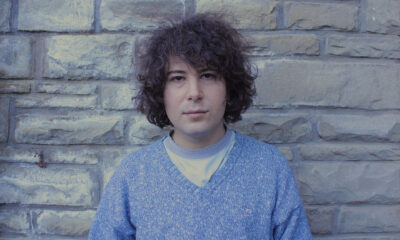
 Indie1 week ago
Indie1 week agoMichele Ducci Premieres Bouncy New Single “You Lay the Path by Walking on it”
-

 Alternative/Rock1 week ago
Alternative/Rock1 week agoWilliam Edward Thompson Premieres His Stripped-Down “Sleep Test” Music Video

